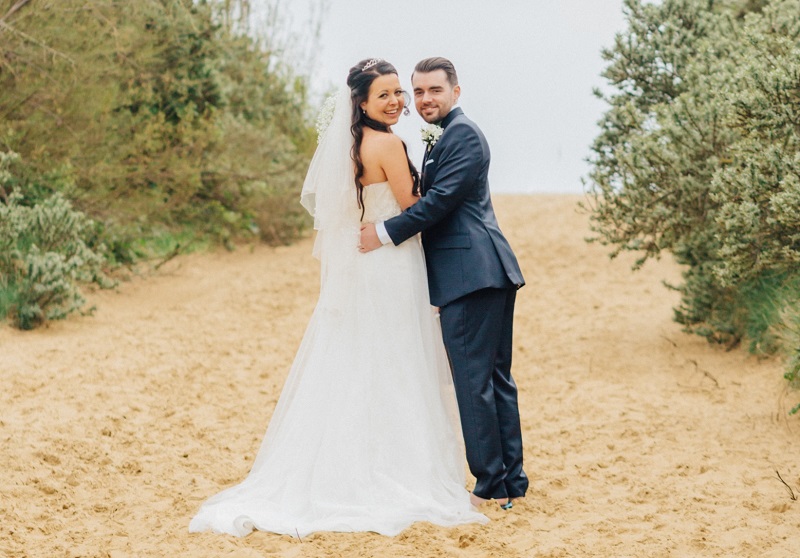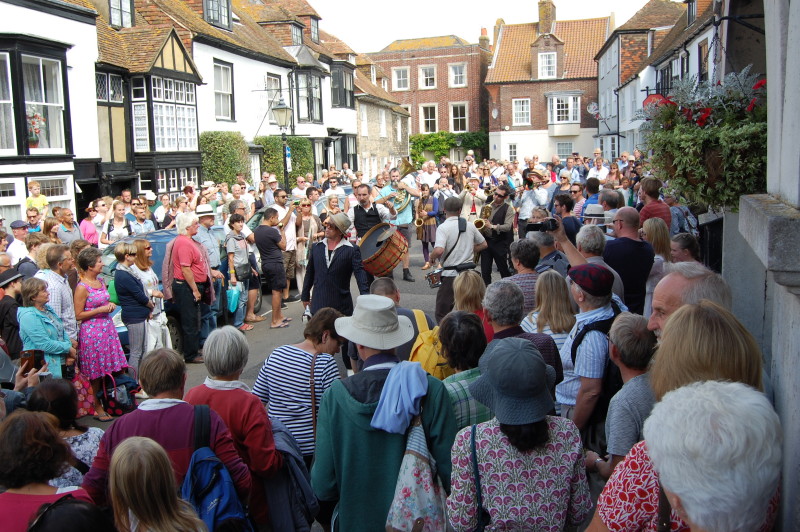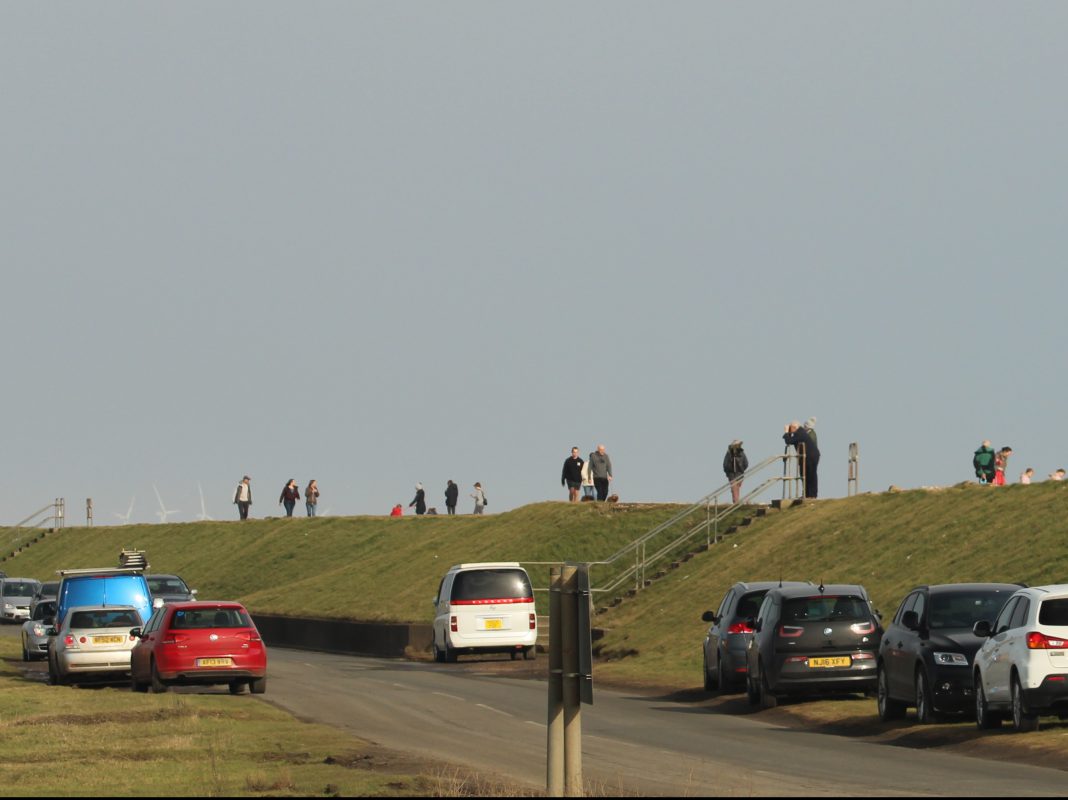This week the Prime Minister announced a route out of lockdown. Reactions have been mixed. Some have welcomed it as giving a clear indication of the way forward, even though there are warnings that progress might be impeded if infection rises. Others are dismayed that it will be late June at the earliest before anything like normality returns.
The government’s lengthy Covid-19 Response document includes a Four Step Route Plan and the PM has said that progress down the route plan will be monitored by keeping a close eye on the data. He has emphasised that progress will be cautious and, although irreversible, may require the imposition of localised lockdowns if infections start to rise.
The journey starts with Step One on March 8, with the opening of schools and colleges. University students will return for practical courses, with a review after Easter for others. Secondary school students will be asked to wear face coverings in class. Some childcare will restart.
Two people from different households can meet outside for recreation, which can include “a coffee on a bench”. One nominated person can visit a care home, but will need PPE, a Covid-19 test, and will have to “keep contact to a minimum”. Weddings with up to six people present can take place.
Golf and tennis can restart
On March 29 people will be allowed to meet outside, with one other household, or within the “rule of six”. The “stay at home rule” will change to “stay local”. Some outdoor sport facilities will reopen, including golf courses, tennis and basketball courts. Organised outdoor sports can also restart. Parents and childrens groups can return, but are capped at 15 and must be outdoors. Indoor groups can take place for vulnerable children and where parents need the groups to go to work.
Step Two will be no earlier than April 12. Shops will be allowed to open. Restaurants and pub gardens will be allowed to serve outdoor customers. Gyms, hairdressers, beauty salons and other “close contact services” can reopen.
UK domestic holidays (away from home) will be permitted. Self-contained accommodation can be booked for use by the same household. Children will be allowed to attend indoor play activities and can be joined by up to 15 parents or guardians. Parks, libraries and community centres can reopen. Weddings can take place for up to 15 people; other instructions for churches are awaited.
Step Three will be no earlier than May 17: Groups of up to 30 people can meet outdoors. Six people or two households can meet indoors. Pubs, restaurants and other hospitality venues can serve customers indoors. Up to 30 people can meet to celebrate weddings or other life events, like christenings. Outdoor entertainment, such as outdoor theatres and cinemas can open.
Hotels, hostels and B&Bs can reopen

Indoor venues such as museums, heritage sites, theatres, cinemas and children’s play areas can open. Performances and large events will be subject to limits. Hotels, hostels and B&Bs can reopen. International leisure travel can resume. Adult indoor group sports and exercise classes can restart.
Step Four will be no earlier than June 21: All legal limits on social contact will be removed, including for weddings, funerals and other life events. (From April, the government will run pilots for events such as large weddings, festivals and work conferences to determine how measures such as testing might allow large groups to attend without social distancing). Nightclubs can reopen.
Before moving between each step there will be four tests as below. The review of all the evidence will include more testing. Free test kits for workplaces and businesses will be made available from local testing sites.
Etchingham question mark
(1) The Covid-19 vaccine programme must go to plan. Locally, we have raised with the Sussex Clinical Commissioning Group (CCG) that as the Etchingham vaccination centre shares buildings with a school which returns on 8 March, it is unclear as to what impact that will have on delivery. In the longer term, booster jabs and even revaccination could become a regular part of managing Covid-19. This workload will place a greater burden on existing centres and point to new ones being established. Our work to get one into Rye and District continues.
(2) Vaccines must be seen to reduce the number of people admitted to hospital for Covid-19 treatment and those dying of the virus.
(3) Infection rates must not risk a surge in hospital admissions
(4) New Covid-19 variants must not significantly increase the risk.
A series of reviews
The PM has also said that the journey out of lockdown will be subject to resolving a number of key questions, for which there will be four reviews:
– The first will assess how long we need to maintain social distancing and face masks. This will also inform guidance on working from home – which should continue wherever possible until this review is complete.
– The second will consider the resumption of international travel, seen as vital for many businesses including hospitality, tourism and aviation.
– The third will consider the potential role of Covid-status certification as an aid to management of travel and large events. However there are many concerns about exclusion, discrimination and privacy.

– The fourth will look at the safe return of major events – such as the Rye Jazz Festival above.
Locally we still await the review into why there were slow local infection rates at the start of the pandemic and latterly why they rose dramatically. The ratio of second wave deaths to first wave deaths was higher here in Rother and Hastings than anywhere else in the country.
Rye Mutual Aid (RMA)
Since March 2020, the pandemic has made dramatic changes to many lives. The community response across Rye and District has resulted in a voluntary network (Rye Mutual Aid – RMA) to help the most vulnerable, by collecting food, pharmaceuticals and providing certain home help – and it has signposted other statutory bodies providing help .
It rose spontaneously from the grassroots and with multi generational support and from Westfield to Camber across Eastern Rother, RMA has added value to the efforts of many other bodies providing essential community service, in a way that it has been careful to keep apolitical and ideology free. Many in RMA are keen to retain something that contributes to community resilience and sustainability, solidarity and community cohesion.
Importantly, RMA has demonstrated that ground-level activism can make a difference. RMA in its identified zones, formed from streets and villages, has been an effective model. A small central team has kept business focused by providing steerage and guidance when needed, but essentially activity has progressed at street level.
Communication has been a key plank of the effort, for which RMA has been fortunate to have enjoyed the skills and experience of some talented people to help keep the organisation focused, resourced and on track and the announcement of a route out of lockdown has triggered a review of the future direction of RMA.
What is already clear is that there is still work to do but also many lessons to be identified and captured for the future.
Help for business
With many businesses in and around Rye dependent on tourism and hospitality, fresh announcements are awaited from the Chancellor in the upcoming budget. Some have been helped by the business rate holiday and grants from Rother District and the Lottery; more is needed and may come. Business without cash flow, especially those dependent on visitors and hospitality needs help to reopen. Many have mounting debts and lost staff and volunteers. Tourism and hospitality will take time to recover and the business sector will need all the help it can get.
The wider Covid-19 impacts
Wider impacts from the pandemic include mental health issues and depression resulting from the restrictions, unemployment and non Covid-19 illnesses. We should not forget that there are some 4 million people with such serious health conditions that they are advised to remain “shielded”. There are also cases locally of “long Covid” which are the long term impacts of the virus on patients.
All this aggravates the situation of patients suffering from non Covid-19 illness who have often had to wait for treatment. Despite the increase in NHS resources, the fight against pandemic has meant significant knock‐on effects on the day to day care provided to the wider population. The full extent of all this may take years to assess.
Progress will depend on individual behaviour
With the sun shining again and visitors re-emerging, many hope that the PM’s forecast of the immediate future being “seasons of hope, looking and feeling incomparably better for us all” is correct. Of course, much will depend on adherence to the Health Secretary’s advice – “it is vital that people continue to heed the government advice as lockdown is eased”.
Image Credits: Anthony Kimber , The Gallivant Hotel wedding photography , Kenneth Bird .




The crowd photos of Rye during the Jazz Festival and the end-to-end line of cars parked along Winchelsea Beach are a reminder of what we might expect this summer after restrictions are lifted from 21st June. On the one hand a huge influx of outsiders to our area is good for the tourist business. On the other there is the possible concern felt by the local population of what else they may bring with them, apart from their spending power. If holidaying abroad continues to be curtailed, visitor numbers could swell even more. Personally, I find that thought quite alarming.
I agree Janet – it is important that tourists are welcomed as so many businesses depend on it! However going for a little walk on Pett level beach last weekend was a reminder to me that whether You are a tourist or a local, people still are not getting it about keeping a safe distance!!